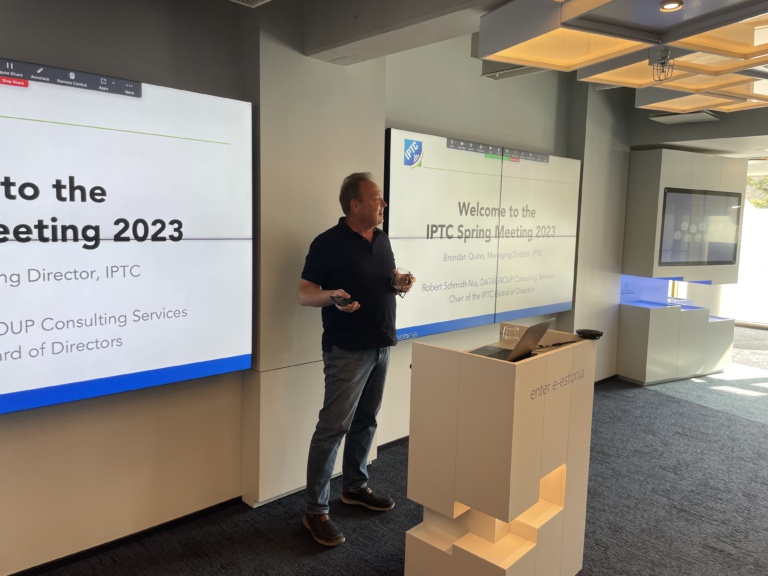
A three-day IPTC session was held in Tallinn, where Picvario participated, as a member of the metadata development board. IPTC working groups discussed a number of «hot topics» in a face-to-face format including:
- generative networks,
- fact-checking and countering fakes
- Embedding content into social networks and publications
It is difficult to convey to the general population the importance of the topics discussed and the purpose of the proposed solutions. Let’s note a few points that the Picvario team focused on:
David Ricks and Michael Steidl, co-directors of the IPTC Photo Metadata Working Group, gave a brief presentation on the latest updates to the IPTC Photo Metadata Standard. They presented recommendations for metadata fields used for content created by generative networks. We are often asked, if users can upload this kind of content to the agency’s archive and how to attribute it properly.
The content recommendations are as follows:
1. In the content description field (Caption/Description), add the information: «The illustration was created by generating based on X technology».
IPTC also recommends adding a «Digital Source Type» tag to the XMP metadata of media content (photos or videos) generated by trained AI algorithms, and adding a trainedAlgorithmicMedia value. This is what will indicate that the image was created using a model derived from sampled content.
2. It is also recommended to use the following values:
- compositeSynthetic — the image is a composition that includes synthetic elements;
- algorithmicMedia — the image was created using only an algorithm based on training data, for example, created by software using a mathematical formula.
A full list of digital source types, their descriptions, and examples of use can be found here: https://www.iptc.org/std/photometadata/documentation/userguide/#_guidance_for_using_digital_source_type
In addition, data fields have been developed that indicate whether collecting programs can use content for training neural networks. Without explicit permission of the copyright holder such use is illegal in Europe, USA and a number of other countries. Currently the world community is forming the rules regulating external use.
After a discussion of rights and the RightsML metadata field, IPTC participants heard from the startups Texta and Storifyme.com about a jointly developed tool that allows to quickly and easily create social media posts from news articles.
On the last day of the meeting Charlie Halford (BBC) spoke, reporting on the latest news from Project Origin and C2PA. Recall that Project Origin is developing a new metadata standard to reflect the history of content changes, which is especially important for recognizing fake content.
Original event release: https://iptc.org/news/iptc-spring-meeting-2023-generative-ai-ai-fact-checking-standards-updates/






